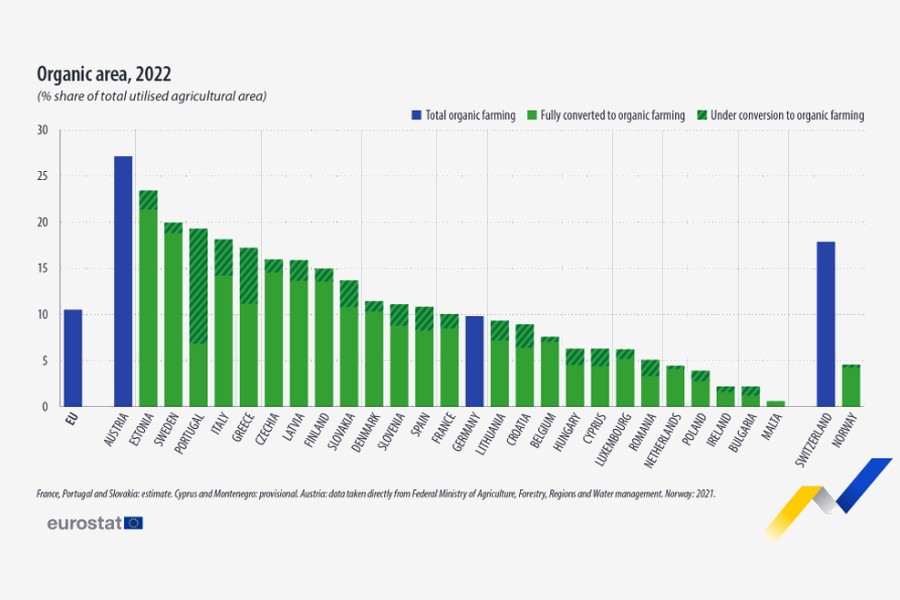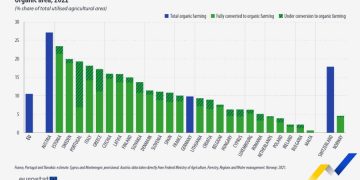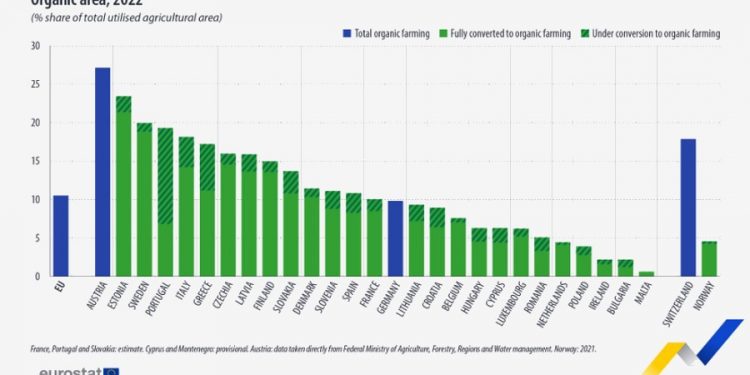EU Sees Significant Increase in Organic Farming Areas, Reaching 16.9 Million Hectares in 2022
In a dynamic shift towards sustainable agricultural practices, the European Union has witnessed a notable surge in organic farming areas, marking a significant milestone in 2022. According to recent data published by Eurostat, the area dedicated to organic agricultural production expanded to 16.9 million hectares (ha) last year, showcasing a steady upward trajectory from 15.9 million ha in 2021 and 14.7 million ha in 2020. This growth reflects an increasing adoption of organic farming methods across EU member states, driven by both environmental consciousness and market demand for organic produce.
From 2012 to 2022, nearly all EU countries experienced growth in organic farming areas. The most remarkable expansions during this period occurred in Croatia (+306%), Portugal (+278%), and Bulgaria (+182%), underscoring a continent-wide commitment to sustainable farming practices. These nations have emerged as leaders in the organic agriculture sector, contributing significantly to the overall EU landscape.

Among EU member states, Austria leads with 27% of its total utilised agricultural area (UAA) dedicated to organic farming, followed by Estonia (23%) and Sweden (20%). These countries have embraced organic farming as a substantial component of their agricultural strategies, setting benchmarks for others to follow. Conversely, some countries still have lower adoption rates, with organic farming constituting less than 5% of UAA in several regions. Malta reported the lowest share, with organic farming covering under 1% of its agricultural area, while Bulgaria and Ireland stood at 2%.
The surge in organic farming areas is not only a testament to environmental stewardship but also presents opportunities and challenges for various stakeholders across the agricultural sector. Farmers specializing in organic production are poised to benefit from expanding markets and premium pricing for organic products. Agribusinesses involved in the production and distribution of organic inputs such as fertilizers and plant protection products are expected to see heightened demand. Moreover, researchers and scientists focused on sustainable agriculture will play a pivotal role in advancing organic farming techniques and addressing emerging challenges.
As organic farming continues to gain momentum in Europe, stakeholders are encouraged to leverage this growth by investing in innovation and sustainability. The shift towards organic methods underscores a broader commitment to environmental integrity and consumer health, positioning organic agriculture as a cornerstone of Europe’s agricultural future.































